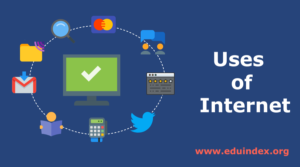Democratization of Publishing:
Before the Internet, traditional media channels were mostly the only means of releasing content and reaching a large audience. The development of blogging platforms made it possible for people from many walks of life to start their own blogs and share their ideas, viewpoints, and experiences with a large audience. People were given the opportunity to express themselves and share their viewpoints as publication became more democratic.
Increased Connectivity and Global Reach:
A global audience might be reached by bloggers thanks to the Internet’s ability to link people from all over the world. Bloggers might communicate with readers from other nations and cultures while exchanging thoughts. This worldwide reach promoted intercultural understanding and communication, and it made it possible for ideas to be exchanged on a scale that had never been possible before.
Engaging and Interactive Medium
A venue for interactive communication was offered by blogs. On blog postings, readers might make comments, promoting discourse. Readers and bloggers might interact, give criticism, and create communities based on shared interests. The interaction between bloggers and their readers facilitated the development of a sense of connection and community.
Alternative News and Niche Content:
A different source of news and information was provided by blogs. Niche subjects that were frequently ignored or misrepresented by conventional media could be covered by independent bloggers. Readers were able to access many viewpoints, pursue niche hobbies, and locate information outside of the realm of established media outlets thanks to the diversity of the content.
Influence on Traditional Media:
Traditional media outlets started to pay attention as blogging’s popularity increased. Bloggers began to establish themselves as respected experts in their professions and gained authority. Blogging was incorporated into traditional media as a result of references and citations made by journalists and news organisations to blog content. This change altered the nature of journalism and increased the public’s access to information sources.
Personal Branding and Professional Opportunities:
As blogging became more popular, people had more chances to build personal brands and demonstrate their subject matter expertise. Successful bloggers can create a following, establish reputation, and use their influence to open up a variety of career prospects, including book sales, speaking engagements, consultancy positions, and brand alliances.
DIY Publishing and Creative Expression
The Internet gave people the ability to publish their work and use their talent without the help of conventional gatekeepers. Blogging platforms provided easy-to-use tools and templates that let anyone design and build their own blogs. This DIY component of blogging promoted experimentation and let people develop their artistic skills.
Community Building and Networking:
Like-minded people may interact and create communities around their shared interests thanks to blogging. Blogrolls, which were directories of suggested blogs that could be found on a blogger’s website, made it possible for readers to find and interact with other bloggers who shared their interests. These links frequently resulted in chances for cooperation, guest blogging, and the creation of online communities centred around particular subjects.
Amplifying Marginalized Voices:
The Internet and blogging were extremely important in amplifying the voices of underrepresented groups. Blogs allowed minority groups, LGBTQ+ people, and activists—those who are typically underrepresented in mainstream media—to tell their stories, promote social justice, and raise awareness of significant topics. These voices had a platform thanks to blogging, which promoted societal change.
Evolution of Blogging Platforms and Tools:
Blogging systems like Blogger, LiveJournal, and WordPress came online in the early 2000s, providing users with simple interfaces and management capabilities for their blogs. These platforms kept improving, adding more functions, allowing for more flexibility, and utilising better content management systems. People found it simpler to create and manage their blogs thanks to the accessibility of these user-friendly technologies, which contributed to the blogging community’s expansion.
Monetization and the Rise of Blogging as a Business:
Bloggers now have more ways to monetize their blogs thanks to the internet. Bloggers can display adverts on their websites and make money depending on clicks or impressions thanks to advertising networks like Google AdSense. Blogging professionals could also look into sponsored content, affiliate marketing, and their own product or service sales. Because of this monetization potential, blogging has become more professional as bloggers approach their blogs like legitimate businesses and generate cash from their online presence.
Impact on Traditional Writing and Publishing:
The world of traditional writing and publishing was significantly impacted by the rise of blogging. In order to demonstrate their writing abilities, build a following, and catch the eye of literary agents or publishers, aspiring authors could use blogs as platforms. A lot of popular bloggers eventually got book deals and made the switch from blogging to become published authors.








































